Animals
-
 Animals
AnimalsA protein in mosquito eggshells could be the insects’ Achilles’ heel
A newly discovered protein found exclusively in mosquitoes may one day help control their numbers.
-
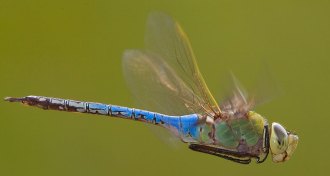 Animals
AnimalsGreen darner dragonflies migrate a bit like monarch butterflies
Some dragonflies do a north-south annual migration that takes at least three generations.
By Susan Milius -
 Animals
AnimalsPoop provides a link in determining penguin diet from space
Scientists have figured out what foods dominate an Adélie penguin colony’s diet by looking at Landsat imagery. But to do so, they had to start with penguin guano.
-
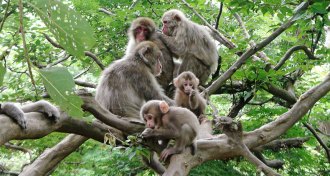 Animals
AnimalsMacaques take turns while chattering
Japanese monkeys take turns while communicating. Adjusting response times while chattering, macaques intentionally pause like humans do when chatting.
By Katie Brown -
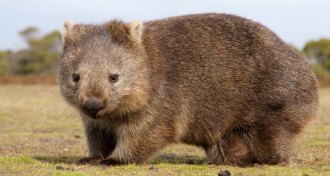 Astronomy
AstronomyThese are the most-read Science News stories of 2018
From male birth control to wombat poop, Science News online readers had a wide variety of favorite stories on our website.
-
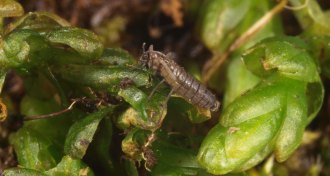 Animals
AnimalsInvasive asexual midges may upset Antarctica’s delicate moss banks
Fast-multiplying insects with earthworm powers have invaded Antarctica, and scientists are worried about how their waste could affect the continent.
By Susan Milius -
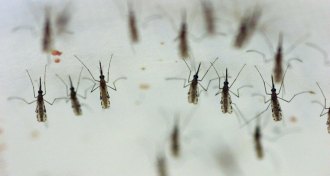 Animals
AnimalsHumans wiped out mosquitoes (in one small lab test)
An early lab test of exterminating a much-hated mosquito raises hopes, but is it really such a great idea?
By Susan Milius -
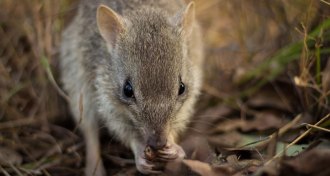 Animals
AnimalsEndangered northern bettongs aren’t picky truffle eaters
Without the northern bettong, the variety of Australia’s truffle-producing fungi could take a hit, a new study finds.
-
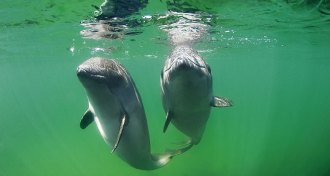 Animals
AnimalsCounting the breaths of wild porpoises reveals their revved-up metabolism
A new method tracks harbor porpoises’ breathing to collect rare information on the energy needs of the marine mammals.
By Susan Milius -
 Animals
Animals50 years ago, armadillos hinted that DNA wasn’t destiny
Nine-banded armadillos have identical quadruplets. But the youngsters aren’t identical enough, and scientists 50 years ago could not figure out why.
-
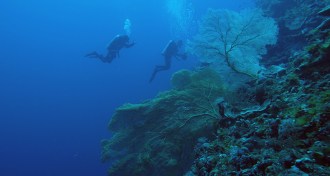 Animals
AnimalsNearly 200 Great Barrier Reef coral species also live in the deep sea
There are more coral species lurking in the deep ocean that previously thought. That could be good news for their shallow water counterparts.
-
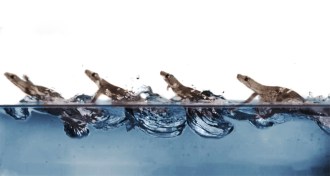 Animals
AnimalsHere’s how geckos (almost) walk on water
New high-speed video reveals how geckos use a hybrid walking-swimming gait in water to reach speeds similar to those on land.